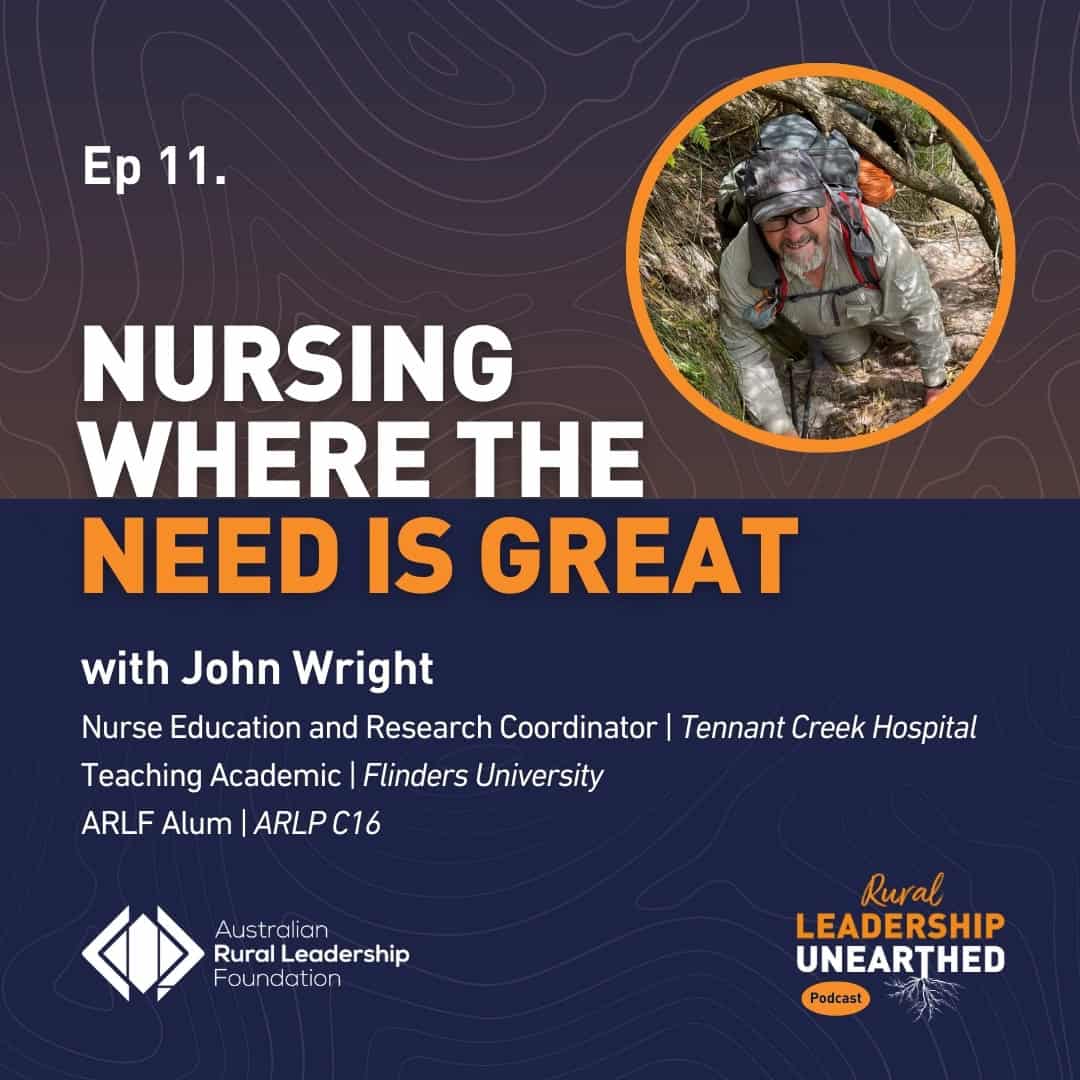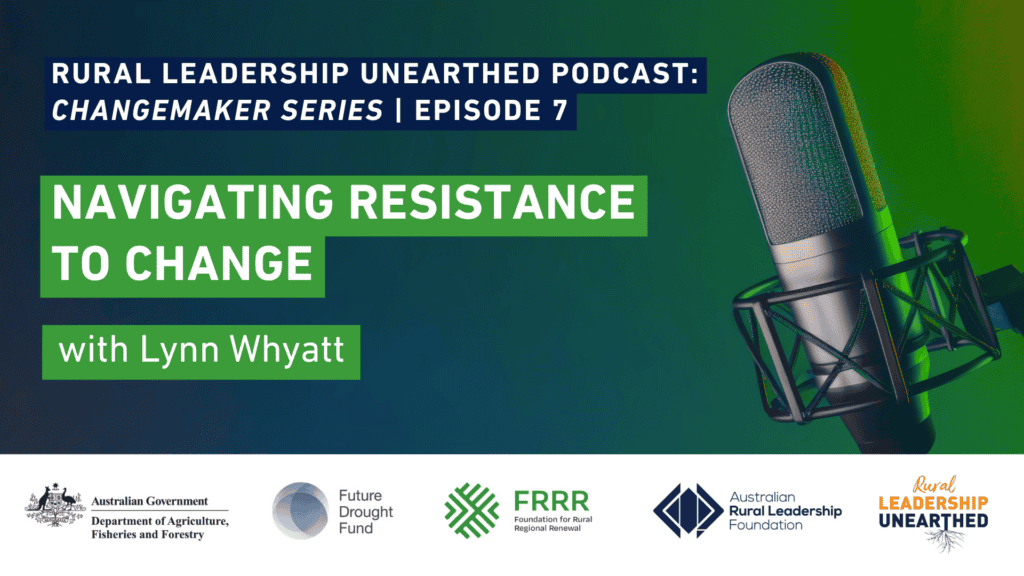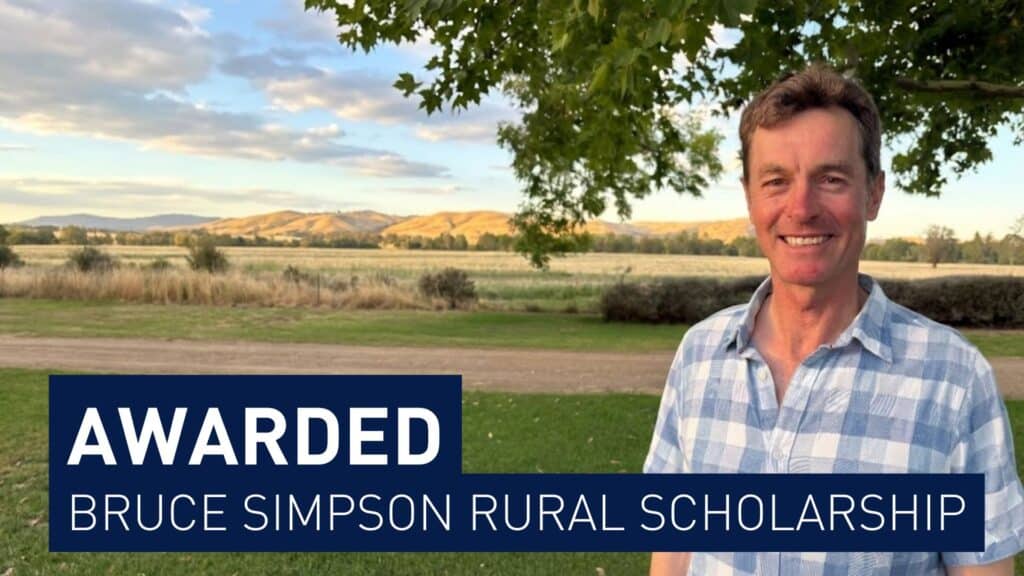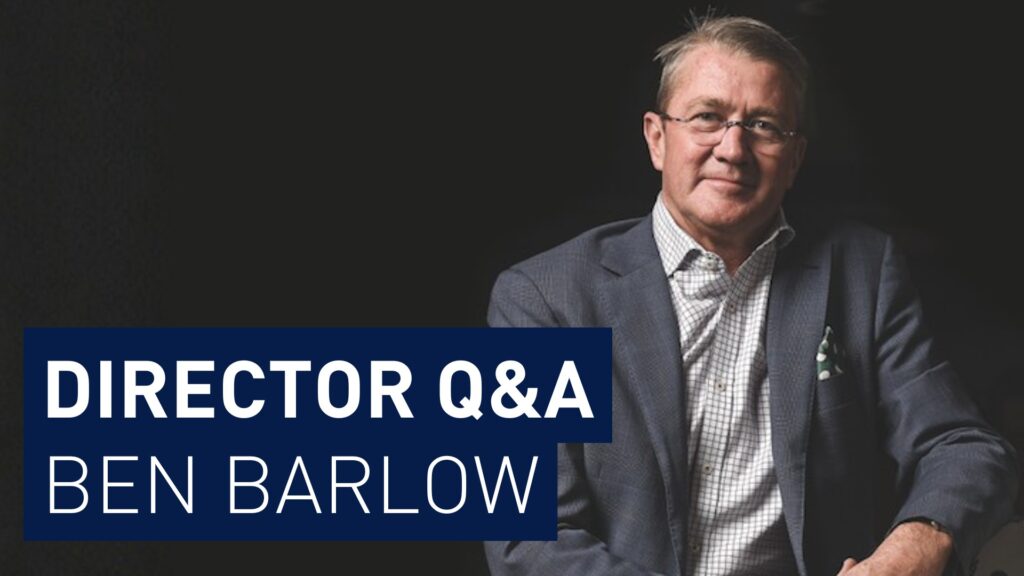Remote nurse, John Wright, proudly flies the flag for a career that demands strength, practicality and resilience from all who choose it, yet is overwhelmingly assumed not to be a natural calling for men.
From farming to shearing, fencing, driving trucks and working in grain handling, John’s path into nursing was circuitous but meant-to-be. John has applied his unique life skills and endless appetite for learning and built a remarkable legacy of leadership in remote health. He also shares the importance of fostering trust and connection as he serves his community in the Tennant Creek region of the Northern Territory.
John is currently a Nurse Education and Research Coordinator with the Tennant Creek Hospital’s Clinical Improvement Unit, and he has a part time secondment with Flinders University as a teaching academic. He completed Course 16 of the Australian Rural Leadership Program in 2010 thanks to a scholarship from the-then Department of Health and Ageing.
This episode discusses domestic and family violence. If you need support, reach out:
1800 RESPECT on 1800 737 732 [https://www.1800respect.org.au/]
Kids Helpline on 1800 551 800
MensLine Australia on 1300 789 978 (https://mensline.org.au/family-violence/)
Safe and Equal [https://safeandequal.org.au/]
Claire Delahunty: Tell us about yourself; where you live and work and what you do.
John Wright: I live in Tennant Creek in the Northern Territory. I’ve been here for the last 14 years. It’s the longest I’ve ever lived in one place. There must be something right about Tennant Creek for me and my family. And my current paid position is remote nurse education and research coordinator at Tennant Creek Hospital. But that’s only one of the many things I do.
CD: Yes, it looks like you had a winding path into becoming a remote nurse.
JW: I was a farmer on the Eyre Peninsula in South Australia, out on a scrub block. When I finished school at the end of year 11, I went shearing, truck driving, grain handling, built up enough savings to get into share farming and had enough money to put in two crops, which both failed due to drought. Then I decided I would need to do something else.
CD: It sounds like things were intending you to go a different route.
JW: I’ll say it wasn’t a waste, though, because I have a very practical mechanical mindset. I can fix anything and am very good at problem solving, which has proved to be amazingly useful in my chosen career. I went back to school and did year 12 before finding out I didn’t actually need to do year 12, and then went off to university. I did the first year of an electronic and electrical engineering degree then changed to mechanical engineering, did a year of that and then changed to surveying, did two years of that. Then I realized they’re all hobbies, but it’s not something I want to do for the rest of my life. I just worked in a factory on a production line for a couple of years to get my act together. And my then girlfriend’s mother was a GP, and she said, why don’t you do medicine?
So I applied for medical school and they said, ‘no, you’re a bad risk. You’ve tried three degrees. You haven’t finished anything. We’re not willing to take a risk on you.’ And I said, but this is what I want to do. How can I get in? And they said, go and do nursing, if you do well, we’ll give you a place in medical school. I did come top out of a class of 234 students and was offered a place in medical school, but Anita happened to me. That’s my gorgeous wife. And I fell in love with her the very first second I laid eyes on her, which I would have said with my mechanical practical mind that doesn’t happen. That’s false. So we’ve now been married for 31 years. I decided I can’t go off to medical school because she would have to support me and all she would get out of it is to never see me.
So we decided to start a family instead and I have no regrets. Nursing has been an absolutely brilliant career.
CD: To stay in it and do the work you’re doing, you must love it.
JW: Absolutely. I’m not the sort of person that can do routines such as working in a ward or a dialysis unit. I like the adrenaline. So, my specialties in my profession have been emergency nursing about half of the time and remote area nursing is the other half. But for the last nine years, I’ve had the great privilege of being the remote nurse educator for Tennant Creek Hospital. So I get to play in both of my specialties and teach, which I absolutely love. That’s why we’ve been here so long because I love teaching and there’s a great need. So here I am.
CD: Where did you go on your way to Tennant Creek? What sort of areas were you working in in the lead up?
JW: I took my poor wife out of the city to Oodnadatta in the far north of South Australia, out in the desert. And to my amazement and relief, she coped really well with that. And that was my foray as a remote nurse. But then I realised, while I’m a very skilled trauma nurse at that point, having spent seven years in a major metropolitan ED as a senior nurse, I knew nothing about primary health care and neither did my boss. I thought I need to go back to uni. So, I did a master of remote health practice, nurse practitioner. And then I got promoted into a management position in a remote health center and realised, similarly, I don’t know what I’m doing. So I went and got a second master’s in remote health management.
CD: That’s tremendous commitment.
JW: So from Oodnadatta, we went to Central Australia. And then 14 years ago, I had the opportunity to move to Tennant Creek because my wife is totally and permanently disabled now due to a medical condition. We had to leave the bush and move to Tennant Creek. A lot of people say Tennant Creek is still the bush, but to us, it’s the big smoke.
CD: What did you love about that remote setting initially?
JW: What I loved about it was the autonomy, just coming from a hospital setting where it was very highly regulated, nurses couldn’t actually do a lot. We couldn’t work anywhere near the full scope of practice for what we’ve been trained to do. But out remote, we were it. Often we were the only remote nurse and health practitioner. Although in many of the cases, I’ve been fortunate enough to have Aboriginal health practitioners to work alongside, which is brilliant.
But there’s been plenty of times I’ve been the only health practitioner on site. So that autonomy, that breadth of practice, that need to problem solve, to think on your feet, to cope with not getting any sleep for up to three days at a time. There were a lot of things in my background that actually set me up for a really good career and remote nurse practice. In fact, the only thing that stopped me from still being out bush is the fact that my wife needs more care than what we can get out in a remote community.
CD: Did you have a sense of yourself as displaying leadership while you were doing this incredibly autonomous role?
JW: I just did what I thought needed to be done. And I was always amazed when people would nominate me for awards and say that I showed leadership. I’d say ‘I’m not a leader and not only am I not a leader, I don’t want to be. I don’t want to be the manager. I don’t want to be the boss.’ And yet time after time, I end up in those roles.
I did not see myself as a leader. Then when I was subsequently nominated as a possible applicant for the Australian Rural Leadership Program, I thought, why? I’m not a CEO. I don’t run a company. I don’t own my own business. Why? Why do you think I should do this?
But I had some very persuasive mentors that thought they knew me better than I knew myself at that time.
I can see that I’ve been a leader basically ever since I was able to speak my own mind. I have never been concerned about what other people think of me. I’ve never let other people’s opinion of what I should do, or what I should be, influence who I am.
CD: What position were you at in your career when the ARLP came around?
JW: I was health centre manager in a community, leading a team of seven, so four registered remote nurses, including myself and three Aboriginal health practitioners. And I managed to craft that into a very highly functioning team who worked really well together, which was pretty unique in the industry.
CD: What did you expect going in?
JW: Well, I thought somebody’s made a mistake and at some point they’re going to realise. Looking back, it seems less ridiculous.
CD: You had a healthy dose of imposter syndrome?
JW: I discovered I had imposter syndrome and I very strongly realised that so did everybody else in the program. And that was an absolute epiphany for me. And that was saying, hang on, you are your own worst enemy here. The only roadblocks to you doing what you want to do is yourself realistically.
CD: Were there some things that you wanted help with or wanted some fresh perspective on?
JW: I think a big part of it was I’ve always been terribly conflict averse. I grew up in an incredibly violent household and you did not speak your mind because it was dangerous to do so. So I learned to fear conflict. I would run away from it at any opportunity. So obviously when I became a manager, that was a huge barrier to me doing my job properly. And I’ve just simply had to work through that. And I was certainly in the early days of working through that process when I went through the ARLP. And my friends, people that I now consider my friends, helped me to deal with that.
CD: In a practical sense, what does help with unlearning something that would be deeply embedded?
JW: I think it’s a three step process. The first step is probably the hardest and that’s awareness. That’s actually realizing that this is what’s happened and that it’s not normal. That it doesn’t have to be this way.
Then the second step is finding the tools to make that change and that is having people around you that believe in you. It’s having other ways of thinking that you can practice. And it’s having people who care enough about you to call you when you slip back into old ways of thinking, they’ll call you on it and say, hey, John, we’ve agreed we’re not going to think about this anymore. And then the third thing is that maintenance. It’s having people that care enough to check in on you from time to time. And it is hard work.
CD: Did the ARLP experience it affect what you thought you would go and do next?
JW: We were challenged during the program to write a letter to ourselves to be open in five years time. I didn’t set my expectations very high. I thought, you know, I have these barriers that I can’t ignore. But within the spheres that I thought were reasonable, my five-year plan was pretty spot on. It was becoming an acknowledged expert in my field of expertise, which I believe I am now, and being able to educate a broader group of people than just the people I work with. And I’ve certainly managed to achieve that through CRANAplus. And the other thing was that I thought that I would end up being the Chair on the board of CRANAplus and didn’t do that within the five years, but it has been achieved.
CD: What is CRANAPlus?
JW: CRANAplus is the peak body for remote health or remote nursing and isolated health practice in Australia. So the organisation represents all health practitioners in that work in or support remote health practice in Australia. So it’s pretty broad and it’s very well regarded by government as the voice for the industry. And that’s something that’s really developed well over thethe nearly two decades that I’ve been directly involved.
It’s been very interesting to see it growing from what really was a cottage industry, just supporting a small group of remote nurses, to a big organisation that represents all health practitioners in isolated practice, not just nursing.
CD: Many people would still balk at life and a career in Tennant Creek. What are the challenges and the rewards of working in the Tennant Creek community?
JW: I’ve really loved it. I grew up out in the country a little more isolated, so just on the farm with just family. But the early part of my working life was in farming communities and in country towns. I’m very used to that lifestyle.
The challenges of Tennant Creek in particular, I don’t think are any different than the challenges of any other country town. You know, there’s occasional things with house break-ins and car break-ins and things like that, but that happens everywhere. Obviously being in the middle of the Northern Territory, we have a higher population of First Nations people than we would have in other country towns.
I love it and I do recommend it to nursing students. And I also recommend it as an excellent way to get into remote health. Start somewhere a little bit more like a remote hospital and that’s an easier way into the industry. My sense is that that improves retention and that’s a big issue for us.
CD: What are the current challenges with retention?
JW: It has got significantly worse since COVID. The big resignation has been very real for remote health practice. We rely much more than we ever did before on locum staff; people fly in, fly out; people that just come for a short time and then move on. And that has its own challenges, particularly when you’re dealing with Aboriginal and Torres Strait Islander peoples where the relationship is everything. It’s really tricky to develop a relationship if you’re only here for three months.
CD: There must be some wonderful rewards to being a health worker in an NT community as long as you have.
JW: I think it comes back to relationships. People learn to trust you. Because if they don’t trust you, you don’t last. So to stay for a long term in any community, people have to trust you and respect you and to want you to be there as part of their team.
The population here is about 3,000 people. There’s 8,000 people altogether in the region that Tennant Creek serves. And in that, there’s probably there’s probably about 200 staff across there and I’m involved in their clinical education, their mandatory training and their upskilling. A lot of the time it’s just me.
CD: What else do you still lean on from your ARLP experience?
JW: I think it’s the sense that I can do it. And that definitely came from the program. There are many opportunities that I’ve turned down, even though my story is an interesting one and it shows lots of challenges. There are many opportunities that I’ve turned down over the years because I just didn’t think I could do it. That’s less of an issue now. I’m more likely to say yes than no.
CD: Do you have an idea of an impact that you want to leave in the scope of all you do?
JW: I put that my goal in my career is to make a significant difference as a remote nurse and remote healthcare worker. So I’m always striving to do that. Whether that has a particular shape or a particular picture, I’m not really clear on that. I’m not sure it really matters because I’m the sort of person that just where there’s a need, I try and deal with it. I think part of the reason that I’ve stayed in Tenant Creek for so long is, as I said before, the need is great. There’s an ongoing need for education, for development, for leadership training.
CD: From your experience, what do you think some of the keys to retention are?
JW: Overall I think it’s feeling valued and feeling like you belong in a team. I think that one of the things that we can do in a remote place like Tennant Creek and in other remote settings is that we can give staff opportunities to shine.
And where there are problems, we listen to staff, we take them seriously and we deal with the issues rather than just brush them under the carpet. I think that goes a long way towards retention. The damage that the pandemic did to our nursing workforce is incalculable. I think so many people have just said, I can’t do this anymore on these terms. I need to be the master of my own destiny now. So I’m going to do locum work or I’m going to do something completely different. It will be another decade before that plays out of the system.
One thing that I’ve often said to students that come out here on remote nurse placements is that if this is something you think you can do, then you really owe it to yourself and the community to give it a go. Because many, many people can’t.
And only 10 % of nurses are male in Australia. And that hasn’t changed. It’s societal attitudes about is nursing an appropriate career for men? And most men would say no, without even really understanding why they would say no. Because as I’ve shown, it can be an absolutely brilliant career. Nothing to be ashamed of.
To catch the full interview, head to the Rural Leadership Unearthed podcast website.
John’s story is one chapter of a larger narrative of ARLF change-makers and visionaries who are helping to reshape our rural, regional and remote communities.





